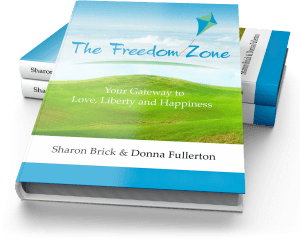Contributed by Donna Marie

What is an apology? And, when is an apology more of an apology/non-apology?
Lately I’ve been reflecting on the power of an apology. It began weeks ago when I tried to tell a friend how to do a task she had agreed to do. I was being bossy, as if my way was the best way. After ending our conversation I realized that I was trying to take over. So, I called her and asked how she felt about the conversation we had had and she told me she felt that I was treating her like a ten year old. I apologized this way, “I’m so sorry you felt that way; I didn’t mean or intend to come off that way.”
A few weeks later, another friend mentioned that he felt offended by an action I took. When he said that, I went immediately into defense mode. I engaged in a little cross-examination, trying to find out exactly what I had said; then I turned to justification, saying it wasn’t my intention to offend; next I expressed disbelief that I would ever do something like the; finally, I pulled out the friend card and said, “We are friends! You know I would never do anything to knowingly offend you.” Interspersed somewhere in our exchange were some, “I’m sorries” but they were muffled by my justifications. In the end my friend said, “Thank you for your apology/non-apology.”
I hated the sound of that. All I could think of was the countless public figures and their conditional apologies, “If I offended anyone … I’m sorry,” that I often expressed disdain for. I sat with his comment for a few days and had this insight:
If someone feels hurt or offended by what I said or did then all there is is to apologize … no justification, no explanation … a simple, authentic “I’m sorry” is what is needed. Even if it wasn’t my intention, that they took it the way they did is all the reason I need to apologize and take responsibility for my actions.
When I’m busy justifying, I am not as concerned about how the person feels and it is difficult to give a sincere apology. It reminds me of the times I have been in a conversation with someone and my focus has been on what my next response than on what the person is saying. When I do that I am not really hearing what the person is saying. Not feeling heard when one feels wronged tends to deepen the hurt.
Then came this latest episode. I got a call from a gentleman interested in doing business with me. When I heard his voice, I made the assumption (based on past experiences with telemarketers selling one service or another) that this call was an unwanted solicitation. I quickly shifted into combat mode, he became defensive and, as he ended the call, he told me that he had been referred to me. Clearly I was dead wrong in my assumption–bringing to mind that old adage, when you assume, you make an ass out of u and me.
The fact was that he had reached out to me because a colleague had recommended he contact me. Even though I might not have been interested in doing business with him, the way I reacted was inappropriate and, given the context, his defensive reaction was understandable.
After replaying the conversation in my mind, I saw that my dismissive reaction was the result of becoming desensitized by the many solicitation calls I receive. However, being in business, I often get calls from people I don’t know. Being rude is not the way I want to respond to anyone. Guided by my recent experience (when I had offended my friend), I decided to call and apologize to the gentleman for my inappropriate response. As I formed the apology in my mind, I could hear the thoughts of justification bubbling up; but I moved them aside, made the call and apologized without justification.
With this insight about apology, I feel an authenticity in my apologies and the need to be justify my position falls away. I can then say, “I am sorry I offended you in any way with my actions” … simple and to the point.
Have you ever given an apology/non-apology? We invite you to share your comments in the box below.


Views and Reviews